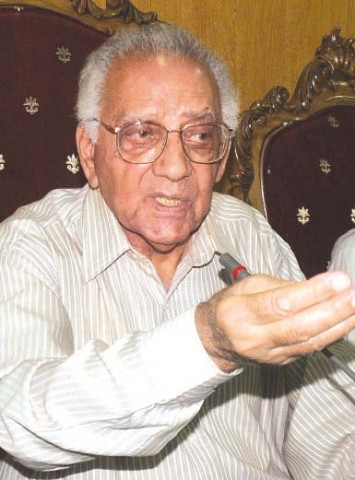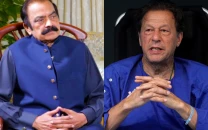Press conference: ‘Time to revise our political and economical structures’
WPP leaders say national conflicts, exploitation mean fresh provincial boundaries needed.

Press conference: ‘Time to revise our political and economical structures’
Minto strongly opposed any military or judicial intervention in the political and administrative affairs of the country, which he said could be better reformed in a more profound manner by the citizen of Pakistan themselves.
He was of the opinion that the current political, economical and social structures have failed to deliver. He said the political elites are equally responsible for the mess the country is in and have no solutions to offer, only their own vested interest; “The replacement of obsolete political, ideological and economic structures is the only hope for Pakistan to become a viable and strong state and for its’ ethnic, class and other social conflicts to be resolved,” he maintained.
Minto said that Pakistan is being torn apart at the seam by a combination of imperialist war, religious militancy, ethno-national strife and ruthless capitalist accumulation. Referring to the Karachi situation, he said the city is a microcosm of the predicament facing the entire country where land, drug and gun ‘mafias’ are running riot under the cover of mainstream political parties.
“These vested political formations are producing ethnic tensions and there is no state institution - including the army - that can be relied upon to resolve this situation. The Supreme Court is neither responsible, nor capable, of establishing peace in the city. The people of Karachi themselves must transcend ethnic identities to restore peace and sanity to the city,” he added.
He particularly mentioned the injustice meted out to the people of Giglit-Baltistan, where police opened indiscriminate firing on protesters when they demanded the compensation announced by the government following the Attabad disaster. He also alluded to Balochistan, saying that it continues to be radicalised along ethnic lines largely due to the ongoing military operation, kidnappings and target killings of political activists and students
The WPP leaders said that ethno-national conflicts and the prevalent issue of class exploitation require the fresh demarcation of provincial boundaries.
They said that the existing provinces are essentially creations of the British Raj and it is time to reconstitute the social contract in accordance with the democratic aspirations of the people, cultural and linguistic divisions, and economic imperatives.
The WPP leaders also called attention to the desperate plight of flood victims in Sindh, terming the continuing devastation a failure of the state, “Instead of addressing the issue, the government is bent upon emphasising ‘national security’ despite repeated misdeeds of the military establishment.”
The WPP members reiterated that for Pakistan to become a successful state, its’ people must be united in a genuine federal structure. They also highlighted the importance of good relations with neighbouring countries.
For these positives measures to manifest, the supremacy of the military over political institutions and non-productive defence expenditures will have to be checked.
The participants agreed that in order to achieve all this, an irrevocable change in the policy structure would have been to be brought about.
Published in The Express Tribune, September 19th, 2011.



















COMMENTS
Comments are moderated and generally will be posted if they are on-topic and not abusive.
For more information, please see our Comments FAQ